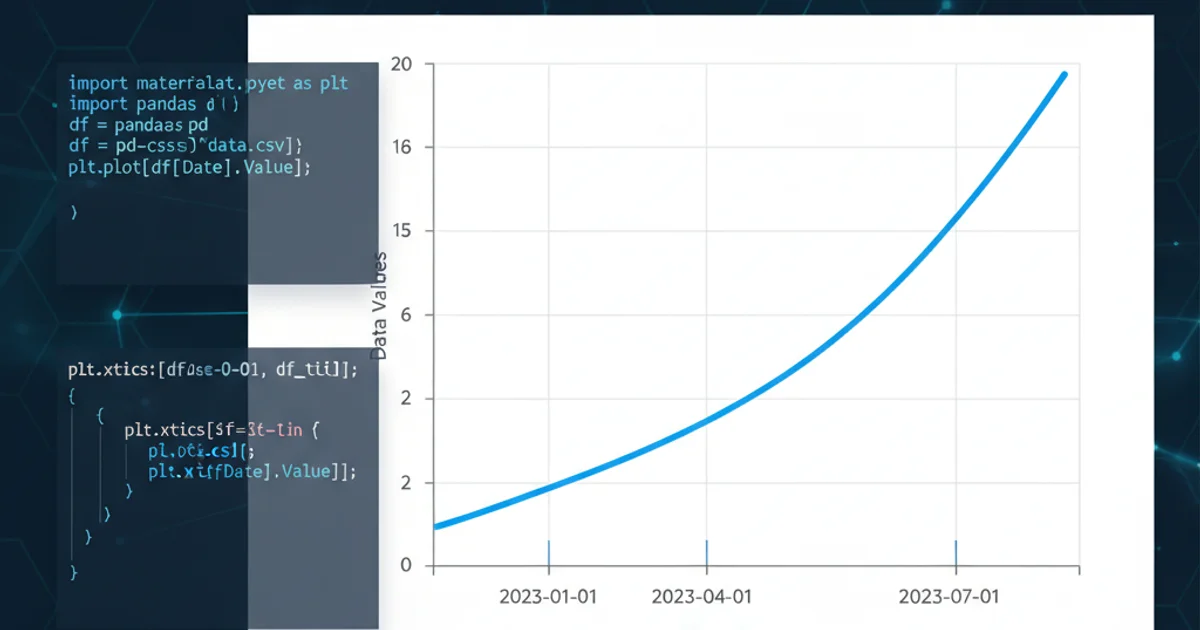'Notice: Array to string conversion in...' error
Categories:
Understanding and Resolving 'Notice: Array to string conversion' in PHP

This article demystifies the common PHP 'Notice: Array to string conversion' error, explaining its causes and providing practical solutions to help you write robust and error-free code.
The 'Notice: Array to string conversion' is a common PHP notice that developers encounter. While it's not a fatal error that halts script execution, it indicates a potential logical flaw in your code. This notice typically arises when PHP attempts to implicitly convert an array into a string context, which is an operation it cannot perform directly. Understanding why this happens and how to properly handle arrays in string contexts is crucial for writing clean, maintainable, and error-free PHP applications.
What Causes 'Array to String Conversion'?
This notice occurs when you try to use an array in a context where PHP expects a string. PHP is a loosely typed language, meaning it often attempts to implicitly convert data types to fit the context. However, an array is a complex data structure that cannot be directly represented as a simple string without explicit instructions. When PHP tries and fails to make this conversion, it issues the 'Notice: Array to string conversion' message.
flowchart TD
A["PHP Code Execution"]
B{"Attempt to use Array in String Context"}
C{"Is explicit conversion used?"}
D["Array to string conversion Notice"]
E["Desired String Output"]
A --> B
B --> C
C -- No --> D
C -- Yes --> EFlowchart illustrating the cause of 'Array to string conversion' notice.
Common scenarios that trigger this notice include:
- Echoing an array directly:
echo $myArray; - Concatenating an array with a string:
"Hello " . $myArray; - Passing an array to a function expecting a string:
str_replace('old', $myArray, $text); - Using an array as a key in a string context (less common but possible):
$_GET[$myArray]
<?php
$data = ['apple', 'banana', 'cherry'];
// Scenario 1: Echoing an array directly
echo $data; // Outputs: Notice: Array to string conversion in ...
// Scenario 2: Concatenating an array with a string
$message = 'My favorite fruits are: ' . $data; // Outputs: Notice: Array to string conversion in ...
echo $message;
// Scenario 3: Using an array in a function expecting a string
// This example is simplified, but imagine a function like file_put_contents
// that expects a string path, but you pass an array.
// For demonstration, let's use a custom function:
function processString(string $input) {
echo "Processing: $input\n";
}
// processString($data); // This would cause a TypeError in PHP 7+, but in older PHP
// or different contexts, it might lead to the notice.
?>
Examples of code that will trigger the 'Array to string conversion' notice.
Effective Solutions and Best Practices
To resolve this notice, you need to explicitly convert or process the array into a string format that PHP can understand. The best approach depends on what you intend to achieve with the array's contents.
1. Debugging and Inspection
When you simply want to see the contents of an array for debugging purposes, direct echo is not suitable. PHP provides dedicated functions for this.
<?php
$user = [
'id' => 1,
'name' => 'Alice',
'email' => 'alice@example.com'
];
// Use print_r() for human-readable output
print_r($user);
/* Output:
Array
(
[id] => 1
[name] => Alice
[email] => alice@example.com
)
*/
// Use var_dump() for more detailed information (type, length, etc.)
var_dump($user);
/* Output:
array(3) {
["id"]=>
int(1)
["name"]=>
string(5) "Alice"
["email"]=>
string(15) "alice@example.com"
}
*/
// For structured data, especially for API responses or logging, use json_encode()
echo json_encode($user, JSON_PRETTY_PRINT);
/* Output:
{
"id": 1,
"name": "Alice",
"email": "alice@example.com"
}
*/
?>
Using print_r(), var_dump(), and json_encode() for array inspection.
2. Formatting for Display or Output
If you need to display the array's elements as a single string, you have several options depending on the desired format.
<?php
$fruits = ['apple', 'banana', 'cherry'];
// Using implode() to join array elements with a delimiter
$fruitList = implode(', ', $fruits);
echo "My favorite fruits are: " . $fruitList; // Outputs: My favorite fruits are: apple, banana, cherry
// Using a loop to build a custom string
$customList = '';
foreach ($fruits as $index => $fruit) {
$customList .= ($index > 0 ? '; ' : '') . ucfirst($fruit);
}
echo "Custom list: " . $customList; // Outputs: Custom list: Apple; Banana; Cherry
// Accessing a specific element of the array
$firstFruit = $fruits[0];
echo "The first fruit is: " . $firstFruit; // Outputs: The first fruit is: apple
// Using sprintf() for formatted output with specific elements
$person = ['name' => 'Bob', 'age' => 30];
echo sprintf("Name: %s, Age: %d", $person['name'], $person['age']); // Outputs: Name: Bob, Age: 30
?>
Methods for converting array elements into a displayable string.
3. Handling Nested Arrays
When dealing with multi-dimensional or nested arrays, implode() alone won't suffice for a full string representation. You'll often need to iterate or use json_encode().
<?php
$users = [
['name' => 'Alice', 'role' => 'Admin'],
['name' => 'Bob', 'role' => 'Editor']
];
// Incorrect: This would still cause a notice if you try to implode the outer array directly
// echo implode(', ', $users); // Notice: Array to string conversion
// Correct: Iterate and implode inner arrays, or use json_encode
$userStrings = [];
foreach ($users as $user) {
$userStrings[] = implode(' - ', $user); // Implode each inner array
}
echo "Users: " . implode(' | ', $userStrings); // Outputs: Users: Alice - Admin | Bob - Editor
// Best for complex structures: json_encode
echo "\nJSON representation:\n" . json_encode($users, JSON_PRETTY_PRINT);
?>
Handling nested arrays for string conversion.
"Array", which is rarely what you want.